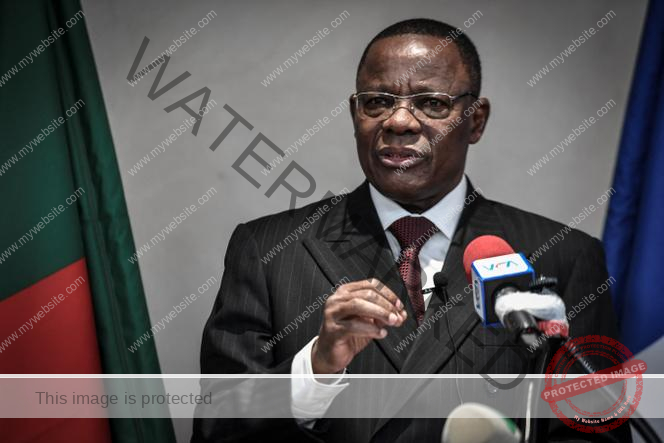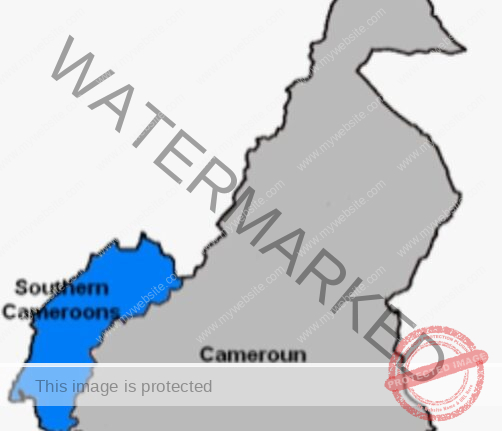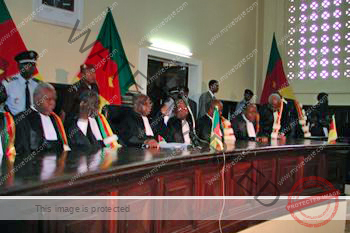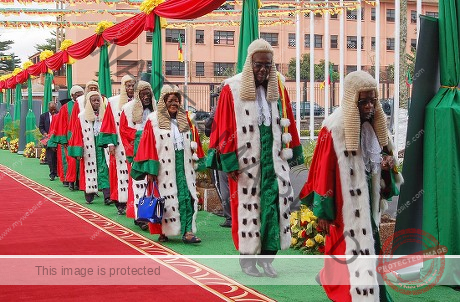Maurice Kamto has now been extinguished through what many see as a silent but calculated elimination.
By the Editorial Desk | The Independentist
It began with murmurs, then whispers, and now the inevitable: Professor Maurice Kamto, constitutional scholar, former Minister, and one-time presidential frontrunner, has been officially excluded from the 2025 presidential elections in La République du Cameroun. His political career—once considered the great reformist hope—has now been extinguished through what many see as a silent but calculated elimination.
While no physical bullets were fired, Kamto’s political assassination was as decisive as any. Of over 80 registered political parties, the regime has handpicked just 13 candidates, conveniently excluding the man who posed the most serious challenge in the 2018 polls. The fingerprints of the Etoudi clique—Atanga Nji Paul, Atangana Clément, and Ferdinand Ngoh Ngoh—are all over this decision. The message is clear: only those who pose no real threat to the status quo are allowed to contest.
Kamto: A Complex Legacy
Kamto’s political journey has never been without contradiction. A key architect of the legal justification for Cameroon’s claim to Bakassi, he later turned against the regime to demand electoral reform. He was arrested for contesting the 2018 results, imprisoned, and briefly celebrated as a political martyr.
Yet during the Ambazonian conflict, his position remained cautious. While he condemned violence, he upheld the view of “One and Indivisible Cameroon”—a stance that alienated many in the Southern Cameroons who expected moral clarity. Still, his rejection from the ballot illustrates that even moderate reformers are no longer safe in Cameroon’s shrinking civic space.
Echoes of the UPC Repression
This is not the first time genuine political competition has been crushed in Cameroon. In the 1950s, France banned the Union des Populations du Cameroun (UPC), forcing its leaders—primarily from the Bamileke ethnic group—into exile and sparking years of guerrilla warfare. Many found shelter in the then-British Southern Cameroons.
Now, history appears to rhyme again. With Kamto sidelined and the democratic space closed, disillusioned citizens from Cameroon’s western and central regions may again seek refuge, not just from violence, but from a system that no longer permits peaceful reform.
The Nkongsamba Betrayal: A Bitter Boomerang
A particularly symbolic twist lies in the story of the man from Nkongsamba who, alongside Prime Minister Dion Ngute, stood before the African Commission on Human and Peoples’ Rights in Banjul. There, he parroted the regime’s narrative, branding Ambazonians as terrorists and justifying violent repression under the guise of state sovereignty.
Today, that same man finds himself discarded by the very regime he so eagerly defended. His fall is a poignant reminder that loyalty to tyranny offers no lasting protection—only temporary relevance. The regime devours even its most loyal servants once they outlive their usefulness or become liabilities.
Ambazonia’s Measured Response
For Ambazonians, these developments are not a cause for celebration, but sober vindication. The regime that denied their existence, called them extremists, and rejected every appeal for justice is now turning inward, cannibalizing its own reformists. The cycle of betrayal and abandonment continues—but this time, the world is watching more closely.
Ambazonia must now tread carefully. As political cracks widen in Yaoundé, and possible waves of political migration loom from Cameroon’s heartland, the temptation to gloat must be resisted. Instead, the focus must remain on building a just, inclusive, and independent future—free from the cycles of repression and co-optation.
A System in Free Fall
What remains of the Cameroonian state today is a brittle structure propped up by repression, occult power, foreign alliances, and fear. Its elections are choreographed rituals; its institutions are hollowed out. When even former ministers and presidential contenders are treated as threats, the façade of democracy collapses entirely.
For Ambazonians, the message is clear: there is no salvation in reunification, no justice in compromise with a state that does not even tolerate peaceful dissent from its own. The case for self-determination has never been stronger—not out of anger, but out of necessity.
Editorial desk- The independentist





















Leave feedback about this